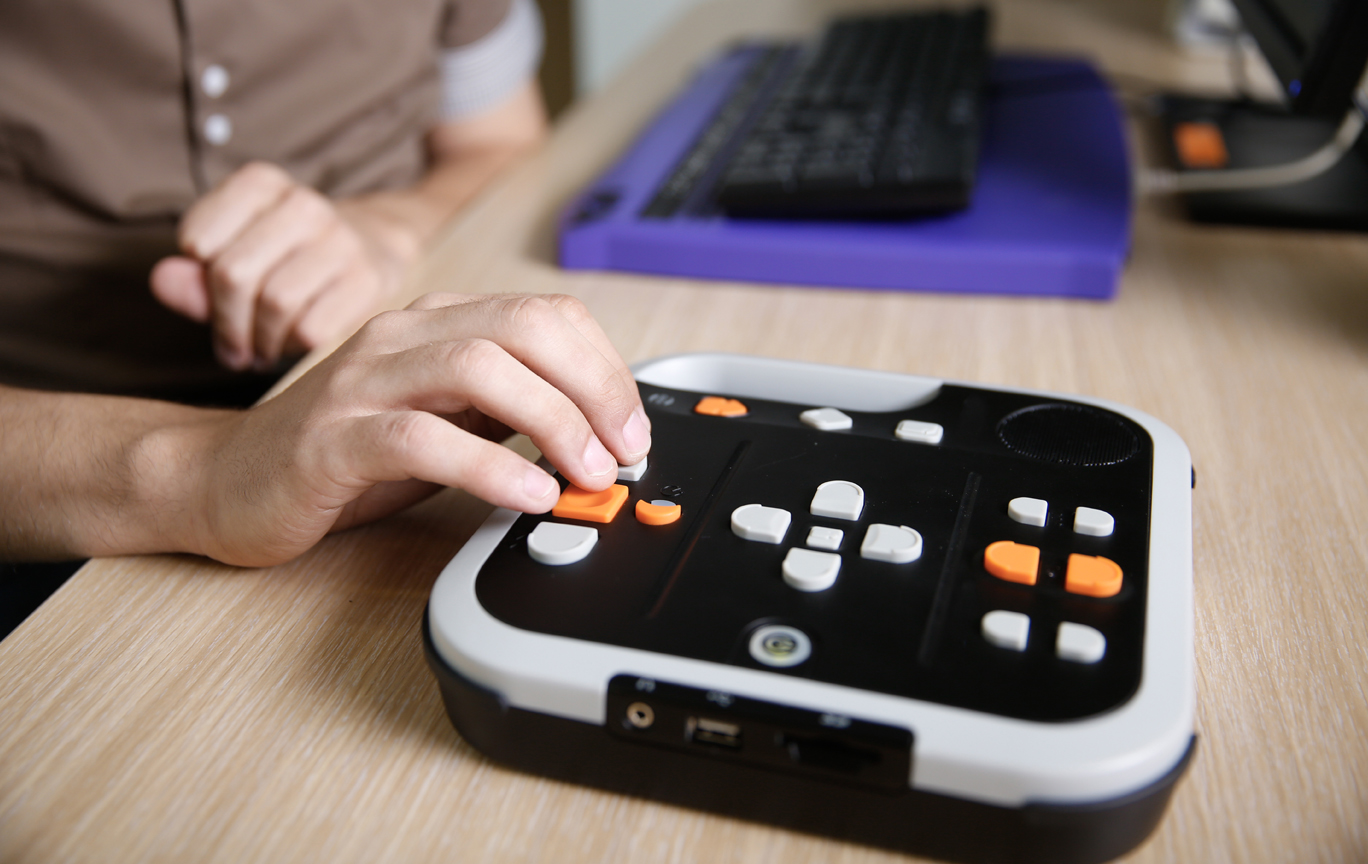
With a vision to empower disabled people and to maximise their participation in the society, Aisha Alawi Baabood opened the White Hands Centre in 2014. Aisha’s departure point was her own experience.
Aisha has a child with disabilities and she herself has been diagnosed of having Irlen syndrome. “I wanted my child to be educated, it is his basic right, but it was not there,” she mentions. She decided to use assistive technology to improve the quality of disabled people and create new opportunities for them in Oman.
Assistive technology improves the functional capabilities of people with disabilities by using a variety of hardware and software. A memory device can help Alzheimer patients.
A colourful keyboard with big keys can ease the learning of children with vision or mobility challenges. A voice reader installed in the computer can assist blind people in their everyday typing. In short it is technology brought to cover the needs of each patient and their disabilities.
Assistive technology is then combined with education and rehabilitation support by the White Hands Centre team which includes educational psychologists and special needs educators and therapists, as well as experts in assistive technology and other specialists. The White Hands Centre is also pioneer on diagnosing Irlen syndrome in Oman. Irlen syndrome is a perceptual processing disorder which can cause either physical symptoms such as fatigue, headache, migraine, or distortion. Print distortion is particularly problematic when it comes to children’s learning as the affected with Irlen syndrome see the letters moving, shaking, fading or with shadows. Aisha explains us how a child in grade 4 who had learning difficulties was treated. First, he was screened and diagnosed with Irlen syndrome. Then, he was treated in the centre and changed remarkably not only in terms of school performance but also when it came to self-esteem and motivation.
But the work of White Hands Centre goes beyond that. Through its conferences, seminars, and campaigns the centre has managed to raise awareness about the necessity to adapt public and private spaces to make them fully accessible to people with disabilities. For Aisha, community awareness is a key factor to have a long-lasting change in the mindsets of the people when it comes to consider and adapt to the specific needs of people so they can fully be a part of the society. But according to her, it is not only about the community, the authorities should also do their part and do it in close collaboration with initiatives which comes from social entrepreneurs like the White Hands Centre. —[email protected]